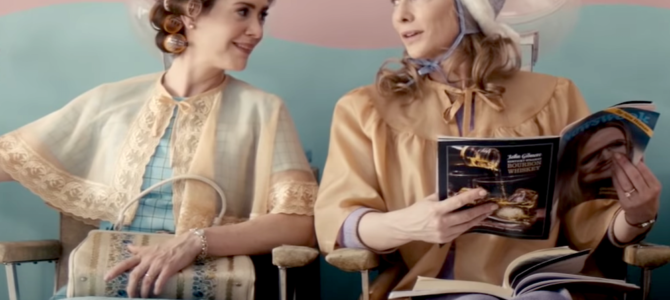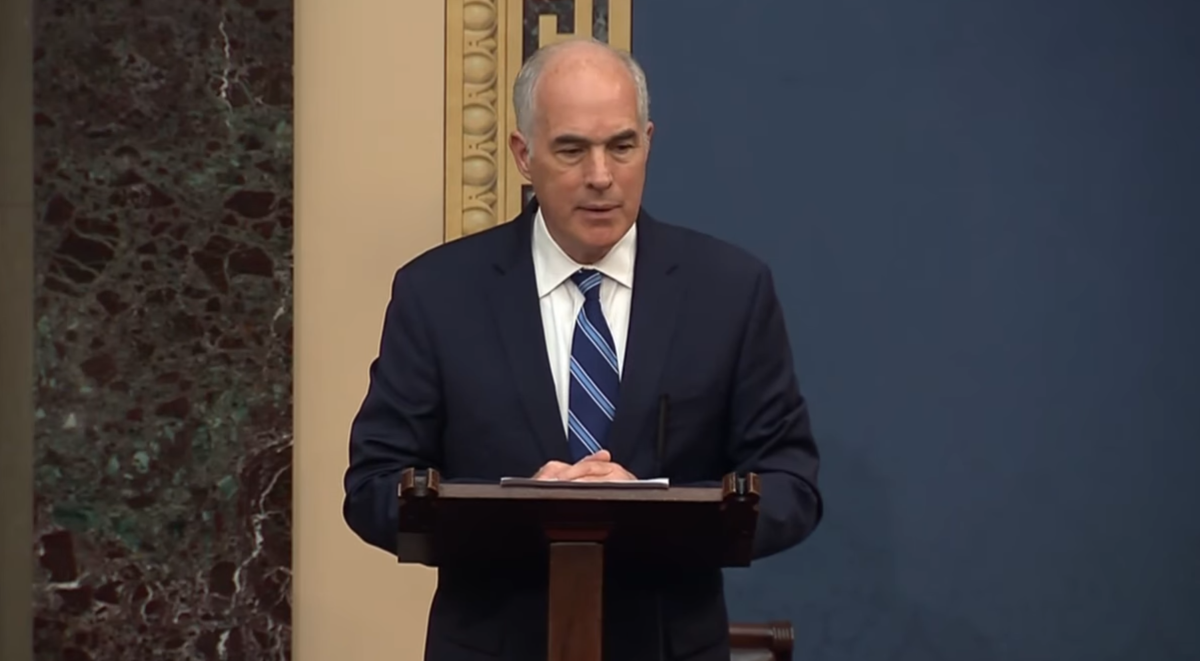
In Hulu’s recent biopic “Mrs. America,” the fourth episode of which was released Wednesday, Hollywood attempts to depict the two sides of the women’s liberation movement. In so doing, they only prove how much they misunderstand conservative women.
The miniseries tells the story of the Equal Rights Amendment (ERA), highlighting high-profile female proponents and opponents. Gloria Steinem, Betty Friedan, Shirley Chisholm, and others are among the featured proponents, while Phyllis Schlafly and her band of activist housewives stand in opposition.
While Cate Blanchett’s acting is brilliant, the series’ spin on Schlafly, the woman Blanchett portrays, exposes the feminist left’s timeless problem with conservative women: They cannot reconcile their existence with feminist ideology. Feminists seem to believe that for conservative women to exist, one of two things must be true: The woman is so brainwashed and weak that she is ignoring her oppression, or she is so power-hungry that she would rather let her fellow women suffer than give up her position of comfortable oppression.
“Mrs. America” plays both sides of the coin in portraying Schlafly, who, according to the creators of the show, is a cold-hearted, power-hungry ideologue who isn’t happy with the political success of by her female compatriots unless her name and reputation are attached, but simultaneously cannot seem to realize that some men she encounters are piggish and insensitive.
‘Mrs. America’ Paints Schlafly as a Willing Victim
The miniseries opens with Schlafly representing her husband, a donor to Phil Crane’s political campaign, by strutting onto a campaign stage with a runway model gait in a “patriotic swimsuit,” as the men smoke, whistle, and ogle. The portrayal is entirely uncharacteristic of the real woman, and the message from the show’s creators is clear: Schlafly is an outspoken anti-feminist, so she must be weak enough to allow herself to be used as a sex object for her husband’s political gain.
One of the starkest examples of how the liberal creators of “Mrs. America” view the existence of conservative women is in their portrayal of Schlafly’s marriage to her husband, Fred. The show consistently shows Schlafly asking for political introductions and favors from her husband, while Fred exasperatedly dismisses her.
At one point, Fred seems uncomfortable with his wife’s intellectual prowess as they prepare for her debate with Friedan. He eventually yells at her, albeit in the role of Friedan, causing her to accuse him of “trying to make me emotional.” He leaves, and she is left to stifle her emotions as best she can, rather than confront her husband’s rude behavior.
By all accounts, however, Fred Schlafly supported his wife’s political ambitions and respected her greatly. The only reason for the show to portray Fred as it does is to vilify conservative men and rationalize away the existence of strong conservative women.
Hollywood Depicts Schlafly as Power-Hungry
“Mrs. America” takes ample artistic license to portray Schlafly’s opposition to the ERA as a power grab rather than an intelligent woman’s well-reasoned position. When one of Schlafly’s compatriots from Oklahoma City announces that she has managed to lead the campaign to defeat the ERA in her state, Schlafly is bothered by the news, worrying that other women are taking over her work and scoring political victories without her name attached. She resolves to defeat the amendment in her own state, lest she “lose all credibility.” According to the show, this, rather than a serious political argument, is her chief motivation for defeating the ERA.
At one point, rather than confronting a fellow state activist’s ghastly views on race, Schlafly bids her friend, Alice Macray, do the awkward job of calling out the woman for her. When the woman threatens to leave, Schlafly immediately forsakes Macray, offering the racist woman and her friends jobs in the movement if they stay. In another instance, Schlafly shoots down every one of her fellow activists at a meeting when they offer to be the spokeswomen for the movement, insisting that she is the only one remotely qualified to fill the position.
Throughout the show, Blanchett’s Schlafly is constantly interrupted, touched, patronized, and underestimated by the men she works with, but she seems never to let this alter her view that she has “never been discriminated against.” In one scene, the men send Schlafly to fetch paper and pens so she can “take notes” on their conversation, as she is assumed to have the best handwriting. She is bothered that she is missing much of the conversation, but when the secretary addresses her as “Ms. Schlafly,” she sternly reprimands her, “It’s Mrs. Schlafly. I’m married.”
Steinem puts the feminist line on conservative women bluntly when, in a rare moment of candidness, the show portrays the frustration of a Nixon-supporting Republican in the women’s caucus. “We can’t seem like we’re anti-housewife,” she says, and one of her feminist compatriots responds, “But we are!” Steinem reasons, “Revolutions are messy. Some people get left behind.”
In another rare moment of bluntness, Friedan, during a debate with Schlafly, echoes Steinem, calling Schlafly a “traitor to her sex,” and “a witch,” who she wished she could, “burn at the stake,” a title which would undoubtedly be labeled sexist if directed against Friedan.
Hollywood Doesn’t Understand Conservative Women
To Hollywood and the creators of “Mrs. America,” Schlafly is either a confused victim suffering from a chronic case of Stockholm syndrome or a purely evil, power-hungry denigrator of women — or both.
Ironically, the first episode ends with the song “Make Your Own Kind of Music” from former Mamas and Papas singer Cass Elliot, whose lyrics read at one point,
They may try and sell ya,
‘Cause it hangs them up to see someone like you.
But you’ve gotta make your own music
Sing your own special song.
For conservative women everywhere, this could be a sort of battle cry. The so-called women’s movement has never welcomed us, nor do we need it to. The fierce independence and determination so many of us have — whether we are lawyers, politicians, stay-at-home moms, or activists — is exemplified in Phyllis Schlafly. Once again, Hollywood fails to understand this, and “Mrs. America” is only the latest evidence.









